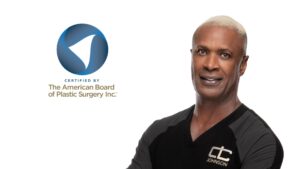Common Myths and Misconceptions About Plastic Surgery

- Myth #1: Plastic Surgery Is Only for Vanity Purposes
- Myth #2: Plastic Surgery Is Only for the Wealthy
- Myth #3: Plastic Surgery Is a Quick Fix for Weight Loss
- Myth #4: Plastic Surgery Results Are Permanent and Require No Maintenance
Plastic surgery myths debunked: It’s not just about vanity or wealth, it’s not a quick weight loss, and results are long lasting but require maintenance.
Myth #1: Plastic Surgery Is Only for Vanity Purposes
Plastic surgery has long been associated with the notion of vanity and superficiality. However, this common myth fails to capture the true essence and significance of plastic surgery in today’s society. Contrary to popular belief, plastic surgery encompasses a wide range of procedures that go beyond mere aesthetic enhancement and address both physical and emotional well-being. One of the primary misconceptions surrounding plastic surgery is that it is solely driven by vanity. This myth suggests that individuals who undergo plastic surgery are solely concerned with their appearance and are motivated by superficial desires. However, the reality is far more nuanced and complex.
Plastic surgery encompasses various procedures that serve functional, reconstructive, and psychological purposes. While enhancing one’s physical appearance can be a motivating factor, many individuals turn to plastic surgery to address medical conditions, physical deformities, or injuries that impact their quality of life. Breast reconstruction after mastectomy is a prime example of how plastic surgery goes beyond aesthetics. This procedure aims to restore a woman’s sense of femininity, confidence, and self-esteem after battling breast cancer. It is not driven by vanity but rather by the need to regain a sense of wholeness and emotional well-being.
Similarly, rhinoplasty, commonly known as a nose job, is often perceived as a procedure solely for cosmetic reasons. However, it can also correct functional issues such as breathing difficulties caused by a deviated septum. This demonstrates that plastic surgery can have a profound impact on an individual’s overall health and quality of life. Plastic surgery also plays a crucial role in addressing congenital abnormalities, birth defects, and physical injuries. Cleft lip and palate repairs, for instance, are essential procedures that improve speech, eating, and social interactions for individuals born with these conditions. Likewise, reconstructive procedures following traumatic injuries can restore form and function, enabling individuals to regain their confidence and lead fulfilling lives. Moreover, plastic surgery can have a significant psychological impact. While physical transformations are a visible outcome, the emotional well-being of patients is equally important. Plastic surgery can help individuals overcome deep-seated insecurities and improve their self-esteem, ultimately enhancing their overall quality of life.
It is essential to challenge the misconception that plastic surgery is solely motivated by vanity. By doing so, we recognize the multifaceted nature of these procedures and the positive impact they can have on an individual’s physical and emotional well-being. In conclusion, plastic surgery is far from being solely for vanity purposes. It encompasses a diverse range of procedures that serve functional, reconstructive, and psychological objectives. By debunking the myth that plastic surgery is driven by vanity, we can appreciate its broader impact on improving the lives of individuals, restoring their self-confidence, and addressing medical conditions. Plastic surgery should be seen as a means to enhance both the outer appearance and the inner well-being of individuals, promoting holistic health and self-acceptance.
Myth #2: Plastic Surgery Is Only for the Wealthy
Plastic surgery has long been associated with an exclusive luxury reserved for the wealthy elite. However, this common myth couldn’t be further from the truth. In reality, plastic surgery has become increasingly accessible to individuals from diverse backgrounds, thanks to various factors that have made it more affordable and attainable for a wider range of people. One of the key reasons why plastic surgery is no longer limited to the wealthy is the availability of financing options. Many reputable plastic surgery practices offer flexible payment plans that allow patients to pay for their procedures over time. These financing options eliminate the need for a large upfront payment and make the cost of surgery more manageable for individuals on different budgets. This means that even if you don’t have a significant amount of disposable income, you can still explore plastic surgery options without breaking the bank.n Moreover, certain plastic surgery procedures are covered by insurance, particularly those that fall under the category of reconstructive surgery. Reconstructive surgeries aim to restore function and improve quality of life, such as breast reconstruction after mastectomy or reconstructive procedures for trauma-related injuries. Insurance providers recognize the medical necessity of these procedures and often provide coverage, making them accessible to patients who meet the specific criteria. This aspect further dismantles the notion that plastic surgery is exclusively for the wealthy.
Additionally, the market for plastic surgery has become more competitive, leading to a wider range of options and price ranges. Many skilled and board-certified plastic surgeons offer their services at competitive prices to attract a larger clientele. This competitive environment drives down costs and creates more affordable options for individuals seeking plastic surgery. By researching and consulting with multiple surgeons, patients can find providers who offer quality services at a price that aligns with their budget. It’s also important to note that plastic surgery encompasses a broad spectrum of procedures. While some may require a substantial financial investment, there are plenty of minimally invasive or non-surgical options available that are more affordable. These procedures can still deliver noticeable improvements in appearance without the higher price tag associated with more complex surgeries. By exploring these alternatives, individuals can find options that fit their financial means.
Lastly, many plastic surgeons are committed to making a positive impact on their communities. They understand the significance of accessibility and affordability in ensuring that more individuals can benefit from plastic surgery. As a result, they may offer pro bono or discounted services for patients in need or collaborate with organizations that provide financial assistance for plastic surgery procedures. These initiatives help bridge the gap and create opportunities for individuals who may not have otherwise considered plastic surgery due to financial constraints. In conclusion, the myth that plastic surgery is only for the wealthy is unfounded in today’s reality. With the availability of financing options, insurance coverage for reconstructive surgeries, competitive pricing, and a range of procedure options, plastic surgery has become accessible to a broader demographic. As the field continues to evolve, plastic surgeons are actively working to ensure that individuals from diverse backgrounds have the opportunity to benefit from these procedures. So, if you’ve been considering plastic surgery but have concerns about affordability, rest assured that there are options available to make your desired transformation a reality.
Myth #3: Plastic Surgery Is a Quick Fix for Weight Loss
Plastic surgery has often been misunderstood as a quick fix for weight loss. However, it’s important to debunk this myth and provide a clearer understanding of the role of plastic surgery in relation to weight management and body transformation. One common misconception is that procedures like liposuction or a tummy tuck can magically eliminate excess fat and result in significant weight loss. While these procedures can remove localized pockets of fat and sculpt the body, they are not intended as weight loss methods. Plastic surgery is not a substitute for healthy lifestyle choices such as regular exercise and a balanced diet.
It’s crucial to recognize that plastic surgery procedures focus on body contouring and enhancing body shape rather than reducing overall body weight. They are most effective when performed on individuals who are close to their ideal weight and have specific areas of concern that are resistant to diet and exercise. These procedures are not meant to replace weight loss efforts but to provide additional sculpting and refining of body proportions. Furthermore, it’s important to understand that plastic surgery requires careful evaluation, preparation, and recovery. It is a significant surgical procedure that should be approached with realistic expectations and a commitment to post-operative care. Patients must undergo thorough pre-operative assessments to ensure they are suitable candidates for the chosen procedure. This includes a comprehensive medical history evaluation and discussions about lifestyle habits, weight management goals, and desired outcomes.
During the recovery process, patients must follow specific guidelines provided by their plastic surgeon. This may include wearing compression garments, adhering to a modified diet, and engaging in gentle physical activity. The recovery period allows the body to heal properly and gradually adapt to the changes made during the procedure. It’s important to note that plastic surgery results are not permanent, especially when it comes to body contouring procedures. While the fat cells removed during liposuction will not return, weight gain can still occur if a healthy lifestyle is not maintained. It’s crucial to continue engaging in regular exercise and maintaining a balanced diet to preserve the results achieved through plastic surgery.
Plastic surgeons emphasize the importance of a holistic approach to weight management and body transformation. They encourage patients to adopt healthy lifestyle habits that include regular exercise, a nutrient-rich diet, and emotional well-being. Plastic surgery can be a complementary tool in this journey, providing targeted improvements to enhance body shape and boost self-confidence. However, it should not be relied upon as a standalone solution for weight loss. In conclusion, plastic surgery is not a quick fix for weight loss. It is important to understand that plastic surgery procedures are designed for body contouring and enhancing specific areas of concern. They are most effective when combined with a healthy lifestyle that includes regular exercise and a balanced diet. By debunking the myth that plastic surgery is a shortcut to weight loss, individuals can make informed decisions about their body transformation goals and embrace a comprehensive approach that incorporates both surgical and non-surgical methods for long-term success.
Myth #4: Plastic Surgery Results Are Permanent and Require No Maintenance
Plastic surgery is often perceived as a magical solution that can provide permanent and maintenance-free results. However, this is a common myth that needs to be debunked. While plastic surgery can produce remarkable transformations, it is important to understand that the results are not necessarily permanent and require ongoing maintenance to preserve their longevity. One of the key factors contributing to the misconception is the expectation that plastic surgery can stop the natural aging process. It is crucial to recognize that plastic surgery cannot halt the passage of time or prevent the effects of aging entirely. The body will continue to age, and external factors such as sun exposure, lifestyle choices, and genetics can influence the appearance of surgical outcomes over time.
It is essential for individuals considering plastic surgery to have realistic expectations. Plastic surgeons emphasize the importance of thorough consultations to discuss the expected outcomes and potential limitations of the procedures. Understanding that plastic surgery can enhance and rejuvenate certain areas of the body but cannot stop the natural aging process is vital in setting realistic expectations. While plastic surgery can produce long-lasting results, it is important to note that maintenance is necessary to preserve these outcomes. Just like any other investment in self-care, plastic surgery requires ongoing attention and proper maintenance to ensure optimal and prolonged results.
Following post-operative care instructions provided by the plastic surgeon is crucial for achieving the best outcomes. These instructions often include guidelines for wound care, activity restrictions, and medication usage. Adhering to these guidelines is essential to support the healing process and minimize complications. In addition to post-operative care, regular follow-up appointments with the plastic surgeon are essential. These appointments allow the surgeon to monitor the progress of the healing process and address any concerns or questions that may arise. It is during these follow-up visits that the plastic surgeon can provide guidance on maintaining and enhancing the surgical results. It is also important to note that lifestyle factors can influence the longevity of plastic surgery results. Healthy habits such as maintaining a balanced diet, regular exercise, and avoiding smoking can contribute to the preservation of surgical outcomes. Protecting the skin from excessive sun exposure and using proper skincare products can also help maintain the skin’s health and appearance.
Furthermore, it is crucial to acknowledge that the body will naturally continue to change over time. Weight fluctuations, pregnancy, and other factors can impact the results of plastic surgery. It is important to communicate with the plastic surgeon about any significant changes in health or lifestyle to ensure that appropriate adjustments can be made, if necessary. In conclusion, the myth that plastic surgery results are permanent and require no maintenance is far from the truth. While plastic surgery can deliver remarkable transformations, it is essential to understand that the outcomes are not necessarily permanent and necessitate ongoing care and maintenance. Realistic expectations, adherence to post-operative instructions, regular follow-up appointments, and a healthy lifestyle are key components in preserving and maximizing the longevity of plastic surgery results. By dispelling this myth, individuals can make informed decisions and take proactive steps to ensure the best possible outcomes from their plastic surgery experience.



